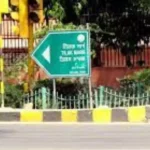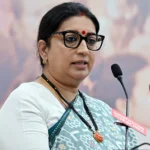In Patna, leaders from 14 opposition parties gathered on Friday to discuss and devise a strategy for the upcoming Lok Sabha elections in 2024. Meanwhile, senior leaders from the Bharatiya Janata Party (BJP) sought to diminish the importance of the meeting, with Home Minister Amit Shah dismissing it as a mere “photo opportunity.”
BJP chief J P Nadda took a different approach, highlighting the backgrounds of the leaders who attended the meeting. He pointed out that many of them were individuals who had been imprisoned by the Congress during the period of Emergency in India. Union minister Smriti Irani echoed Nadda’s sentiments and suggested that the Congress was organizing this coalition of opposition parties due to its own inability to secure victories in elections independently.
During a rally in Jammu, Amit Shah asserted that the chances of opposition unity were “nearly impossible.” This statement reflects the BJP’s confidence in its own political standing and its belief that the opposition parties lack the necessary cohesion to pose a significant challenge in the upcoming elections.
While the opposition parties convened in Patna to discuss electoral strategies, the BJP leaders aimed to downplay the significance of their gathering. Their comments suggest an attempt to diminish the united front presented by the opposition and to instill doubt regarding their ability to effectively counter the BJP’s political dominance.
The meeting of opposition leaders holds significance as it signifies a concerted effort to consolidate their political forces and form a united front against the ruling BJP in the next general elections. By coming together, the opposition parties aim to pool their resources and capitalize on the growing dissatisfaction among certain sections of the electorate. The meeting also serves as a platform for leaders to discuss and deliberate on key issues affecting the nation and develop a common agenda.
The BJP’s dismissive remarks reflect a strategy to undermine the opposition’s efforts and portray their gathering as a mere show of tokenism. By highlighting the past actions of some opposition leaders and insinuating that their political motivations are driven by personal vendettas against the Congress, the BJP attempts to delegitimize the opposition’s unity and portray it as an opportunistic alliance lacking substantive merit.
However, the opposition parties remain undeterred and view their collaboration as a necessary step towards safeguarding democratic principles and providing an alternative voice in the political landscape. They argue that a united opposition can effectively address the concerns of the people and provide a strong and accountable government that addresses the needs and aspirations of all citizens.
As the Lok Sabha elections draw closer, the political landscape in India is expected to witness heightened activity and intense campaigning. The BJP, as the incumbent party, enjoys certain advantages, including access to resources and a well-established electoral machinery. However, the opposition parties are determined to overcome these hurdles by leveraging the collective strength of their diverse regional and ideological bases.
The true impact and outcome of the opposition’s strategy meeting in Patna will only be revealed in due course. The success of their efforts to forge a cohesive front and effectively challenge the BJP’s political supremacy will depend on several factors, including their ability to present a compelling narrative, connect with the electorate, and address the pressing issues faced by the country.
As the political landscape continues to evolve, it remains to be seen whether the opposition parties can translate their unity and strategy into electoral gains. The upcoming Lok Sabha elections will provide a crucial test of their ability to rally support and present a viable alternative to the ruling party. Until then, the nation watches with anticipation as the political dynamics unfold in the run-up to the elections.




